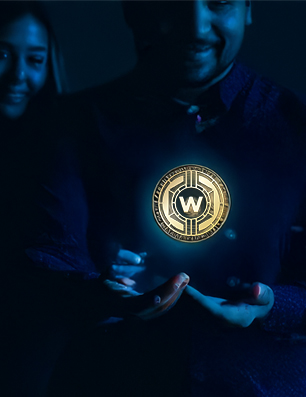- Written by: Brady Tinnin
- Thu, 10 Feb 2022
- Russian Federation
If you’ve got some money on centralized exchanges that you’re considering moving to DeFi wallets, but want to learn about the risks involved, then look no further. Covered: Pros and Cons Best DeFi Wallets Decentralized finance (DeFi) can be dangerous waters to tread if you’re not careful. Due to the nascency of the space, there […] The post Evaluating The Pros And Cons Of DeFi Wallets appeared first on CryptosRus.
Evaluating The Pros And Cons Of DeFi Wallets
If you’ve got some money on centralized exchanges that you’re considering moving to DeFi wallets, but want to learn about the risks involved, then look no further.
Covered:
- Pros and Cons
- Best DeFi Wallets
Decentralized finance (DeFi) can be dangerous waters to tread if you’re not careful. Due to the nascency of the space, there are a lot of pitfalls that hasty investors can easily fall into. However, despite the downside, DeFi wallets for crypto storage also provide some very nice benefits worth taking advantage of. Let’s break them down here.
Pro #1: Self-Custody
Arguably the biggest selling factor for crypto wallets, in general, is the ability to take full custody of your own tokens. If you’ve been in crypto for any meaningful amount of time, you’ve probably heard the phrase “Not your key; not your coins.” In a financial environment as volatile as crypto, this phrase couldn’t be more important for keeping your tokens secure. A centralized exchange (CEX) like Coinbase handles custody of your crypto for you when storing tokens on the platform. While that may sound comfortable, DeFi wallets are here to give you back ownership in case another Mt. Gox situation were to unfold.
Pro #2: Reliable Trading Access
Another major benefit of storing your crypto in a DeFi wallet is full access to reliable trading for quick token swaps. One of the biggest hindrances to traditional centralized exchanges is the fact that they get put under a lot of stress during peak trading times; in many cases, these exchanges can go down with too much trading happening at once, leaving traders hoping to buy or sell out of luck until the servers reboot.
DeFi wallets sidestep this problem entirely by giving you easy access to decentralized exchanges (DEXs). Unlike a CEX, which is typically centrally hosted (and therefore prone to instability), a DEX decentralizes ownership of the protocol, which allows them to handle much greater trading volume without the risk of going offline. So if you have crypto on your DeFi wallet, you should never have to worry about not being able to buy or sell your crypto in time.
Pro #3: Permmisionless Access
Unlike traditional financial institutions, which tend to have a lot of roadblocks in place for basic financial services, DeFi gives you permissionless access to a full suite of various decentralized financial protocols. Whether you’re wanting to lend your crypto and earn yield, take out a loan, or other financial services, DeFi sets no limits and provides instant access to all of these platforms, all without having to verify your identity or reveal personal information.
However, despite the freedom that DeFi wallets gives you access to, nothing is every quite so free, and there are some concerns and disadvantages that you should be aware of.
Con #1: Uncertainty
The blaring red flag of DeFi is that, for the most part, the entire space is subject to a vast amount of uncertainty. The technology is less than a decade old, and government bodies have yet to do their due diligence in properly regulating the DeFi industry. Whether the upcoming regulation will be good or bad for the space is anyone’s guess. Still, the fact remains that you probably don’t want to be pouring all of your life savings into a digital wallet with virtually no oversight in place.
However, day by day, the space is becoming more and more legitimized, with tech pinheads like Jack Dorsey spearheading the push to connect the centralized and decentralized financial worlds.
Con #2: Scalability
The next problem with DeFi is the scalability issues plaguing certain blockchains. The most prominent DeFi platform, Ethereum (ETH), currently suffers from this very issue, as transactions on the network can cost upwards of three to four digits, and slow transaction speeds can leave your transactions waiting in the queue for longer than you may like. In an industry as quick as crypto, it’s imperative that investors are able to move just as quickly.
Other platforms like Solana or Avalanche tend to sacrifice elements of security for greater scalability, so there are tradeoffs between each layer-1 (L1) platform you use as well. It’s important to do your due diligence and test out different protocols to find which one works best for you.
Con #3: Lack Of Insurance
Although DeFi wallets let you take self-custody of your crypto, that also means that you’ll take on some of the risks involved with not securing your money in a properly licensed institution like a bank. There are no insurance measures set in place in the DeFi land. Therefore, you are solely responsible for handling your own crypto. If you send it to the wrong address or give your account details to a fishy protocol, you run the risk of losing your funds entirely, without a chance for recovery.
However, if all you’re wanting to do is use a DeFi wallet to take self-custody and not much else, you shouldn’t have too much to worry about. The only risk you run, then, is losing access to the device that your tokens are stored on. However, knowing your seed phrase will solve this problem for you. In case you were to lose your device storing your crypto, all you’d need to do is download the wallet on another device and enter your recovery phrase to regain access to your tokens.
DeFi wallet hacks can still happen, however, and so some always recommend leaving your crypto off the internet entirely to have true peace of mind. If you’re interested in taking a step further to secure your crypto with a hardware wallet, then you should check out our guide on crypto cold storage and setting up your own hardware wallet.
Best DeFi Wallets
Now that you’ve gotten familiar with the positives and negatives of DeFi wallets, the next step is choosing which wallet is best for you. There are countless options out there, but the most popular, by far, is the MetaMask wallet. Many crypto natives trust MetaMask and use it on a daily basis, and it’s a great option for beginners too just looking to get their feet wet in DeFi. Another popular option is Trust Wallet. Just like MetaMask, Trust Wallet gives you access to a wide variety of DeFi platforms, so you’re not just confined to one native blockchain.
There are other blockchain-specific DeFi wallets, too, such as Solana’s Phantom Wallet or Terra’s Terra Station wallet. Whatever blockchain preference you may have, be sure to do your research about what wallets are available to use on the platform, and study the pros and cons of each to make your pick.
DeFi truly is the wild west at this point, so informing yourself on the risks involved could save you lots of time and money in the long run.
The post Evaluating The Pros And Cons Of DeFi Wallets appeared first on CryptosRus.






